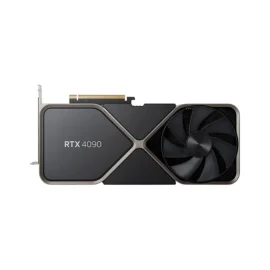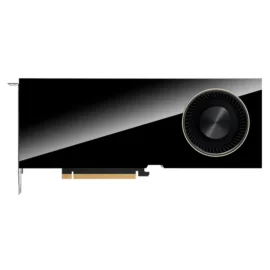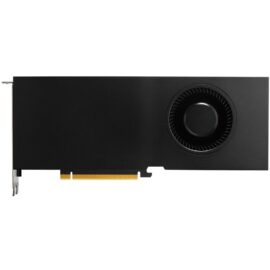As artificial intelligence continues to transform industries, AI servers have become essential in supporting and accelerating the processing power and data requirements of AI-driven applications. In this article, we will explore the role of AI servers, the best options on the market, pricing information, key players in the AI server industry and how to choose a server.

What are AI Servers?
AI servers are specially designed to handle complex computational tasks associated with artificial intelligence, machine learning, and deep learning. Unlike standard servers, AI servers are optimized with high-performance hardware, typically including GPU servers for AI, to process large volumes of data and perform parallel processing efficiently. These servers are capable of handling intensive AI workloads, from training massive datasets to performing inference tasks that power AI applications in real time.
For example, NVIDIA AI servers are renowned for their powerful GPUs, which can process multiple AI operations simultaneously, providing the speed and performance required for tasks like natural language processing, image recognition, and predictive analytics. Additionally, AI servers are widely used by large platforms, including AI servers on Discord, to enhance user experiences with advanced automation and machine learning capabilities.
What is the Best Server for AI?
The best AI server depends on specific project requirements, but several models stand out due to their performance and scalability:
- Dell AI Servers: Dell offers specialized AI servers like the PowerEdge XE series, which are designed for scalable AI workloads. Dell’s servers are equipped with powerful GPUs, optimized storage, and networking features to support AI operations.
- NVIDIA AI Servers: NVIDIA’s DGX systems are highly regarded in the AI field. These servers incorporate multiple NVIDIA GPUs, including models like the A100 and H100, which are tailored for high-speed computation and deep learning tasks.
- Custom AI Servers: Many AI server manufacturers offer customizable options, allowing companies to build a system that fits their workload, whether it’s for research, development, or deployment.
Each of these options is suitable for various AI tasks, from data processing to large-scale AI deployment, and should be evaluated based on their GPU capabilities, scalability, and compatibility with AI frameworks.
How Much is an AI Server?
AI server prices vary significantly depending on the hardware configuration, brand, and intended use. Here’s a general range:
- Entry-Level AI Servers: Basic AI servers start at around $5,000 to $10,000. These typically include lower-tier GPUs or CPUs and are best suited for small-scale projects or experimentation.
- Mid-Range AI Servers: For companies or individuals needing moderate AI processing power, mid-tier servers range from $10,000 to $50,000. These often include more robust GPUs, like the NVIDIA A100, suitable for intensive machine learning tasks.
- High-End AI Servers: High-performance AI servers, such as those in the NVIDIA DGX series, can cost anywhere from $100,000 to over $250,000. These are suitable for large corporations or research institutions with advanced AI workloads.
When assessing the AI server price, consider not only the upfront cost but also the value it brings in processing efficiency and scalability, especially for businesses heavily reliant on AI-driven data insights.
How Much Does AI Cost per Month?
The monthly cost of AI depends on the frequency and intensity of AI operations and whether the server is on-premises or cloud-hosted. Here’s an estimate of costs:
- On-Premises AI Server Costs: Operating an on-premises AI server incurs expenses related to maintenance, power, cooling, and hardware updates. Monthly costs can range from $500 for basic setups to thousands of dollars for advanced configurations with multiple GPUs.
- Cloud-Based AI Server Costs: Major cloud providers like AWS, Google Cloud, and Microsoft Azure offer pay-as-you-go AI instances. Monthly fees can start as low as $100 but easily exceed $10,000 for continuous usage of high-performance GPU instances.
For businesses, choosing between on-premises and cloud AI server options depends on factors like budget, required computing power, and the flexibility to scale resources up or down.
Who Sells AI Servers?
Several manufacturers and tech companies specialize in AI servers, each with unique offerings suited for different needs:
- Dell: Known for its PowerEdge line, Dell AI servers are designed to handle AI and machine learning workloads efficiently. Dell’s solutions are used in various sectors, from healthcare to finance.
- NVIDIA: NVIDIA is one of the top AI server manufacturers, with its GPU-powered DGX systems used widely in the AI industry. NVIDIA’s expertise in AI computing makes its servers a favorite for machine learning applications.
- HPE: Hewlett Packard Enterprise (HPE) also offers AI servers optimized for data-intensive tasks, with flexible configurations to meet the demands of AI and analytics.
- IBM: IBM’s AI servers are recognized for their integration with IBM Watson, making them ideal for enterprises that leverage machine learning and predictive analytics on a large scale.
- Custom AI Server Providers: For specialized requirements, custom AI server manufacturers can design tailored solutions. These vendors often allow companies to select specific GPUs, CPUs, and storage configurations to optimize their AI processing.
From large tech firms to niche server manufacturers, the AI server landscape is rich with options for companies looking to enhance their AI infrastructure.
How to Choose an AI Server?
Selecting the right AI server can be challenging, as AI workloads require specific hardware configurations to operate efficiently. Here are some key factors to consider when choosing an AI server:
- Workload Requirements: Determine whether your AI tasks are GPU-intensive (e.g., deep learning) or CPU-bound (e.g., natural language processing). For GPU-heavy applications, prioritize servers with high-performance GPUs like the NVIDIA A100 or H100.
- Scalability: Consider whether you need a server that can scale over time. For growing AI projects, look for a server with modular components or the option to add additional GPUs and storage as your needs evolve.
- Budget: AI server prices vary widely, from $5,000 for entry-level models to over $250,000 for high-end configurations. Be clear about your budget and the specific features that are most valuable to your AI workload.
- Compatibility with AI Frameworks: Ensure that the server supports the frameworks and libraries essential to your project, such as TensorFlow, PyTorch, or Keras.
- Vendor Support and Warranty: AI servers represent a significant investment, so it’s wise to choose from reliable AI server manufacturers that offer robust support, maintenance, and warranties.
- Cooling and Power Requirements: AI servers, particularly GPU servers for AI, consume a lot of power and generate significant heat. Check if your environment has adequate power capacity and cooling solutions to support the server.
AI servers are transforming the capabilities of businesses and researchers alike, enabling groundbreaking advancements in fields as diverse as medicine, automotive, and finance. From a basic AI server list for beginners to the best AI servers for enterprise, the selection process should prioritize scalability, performance, and compatibility with intended AI workloads.
With industry giants like NVIDIA and Dell continually innovating, and the demand for specialized hardware like GPU servers for AI growing, the future of AI servers looks robust and promising. Whether you’re a small startup or a global corporation, investing in AI server infrastructure is a step towards harnessing the full potential of artificial intelligence.






